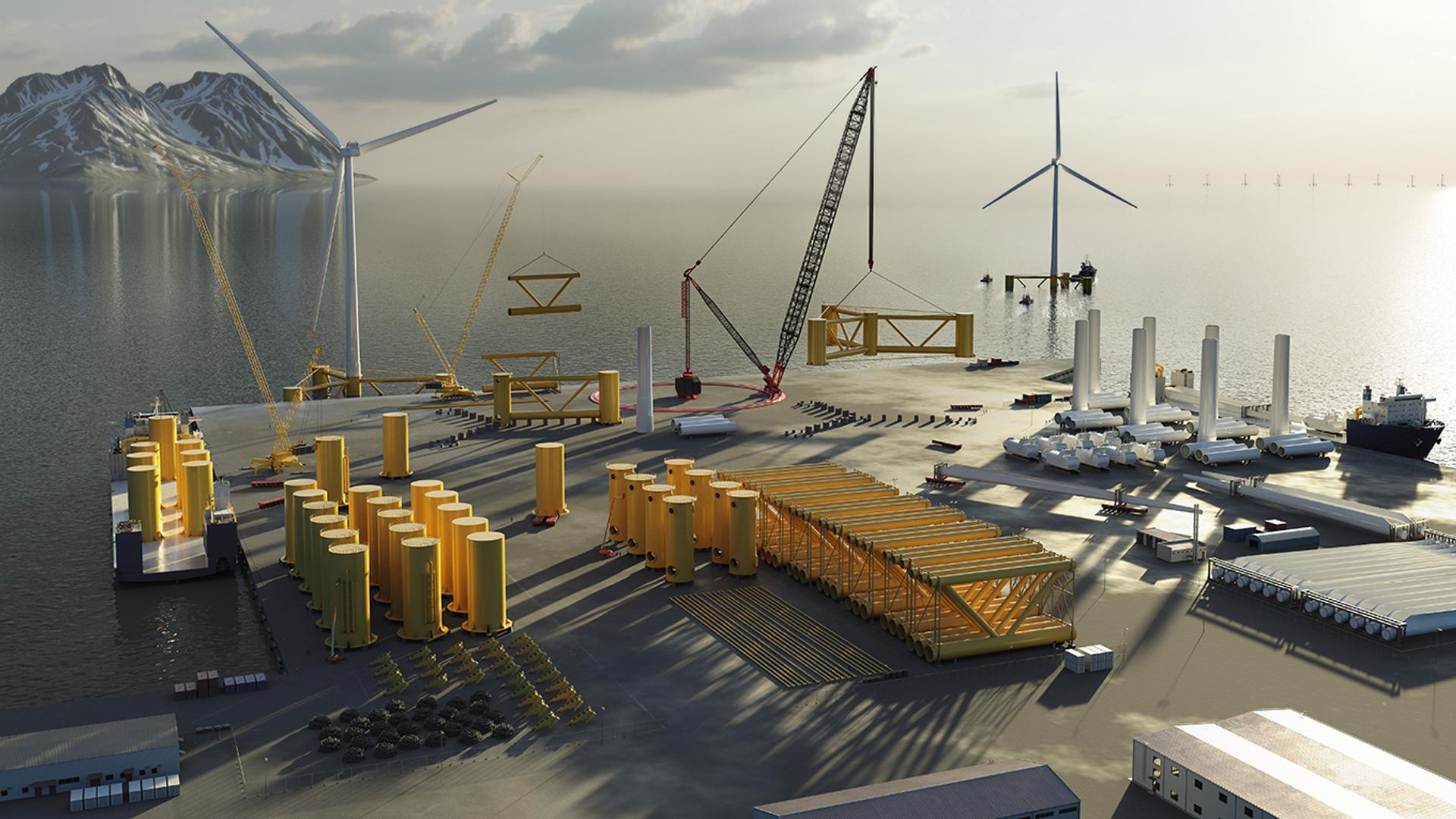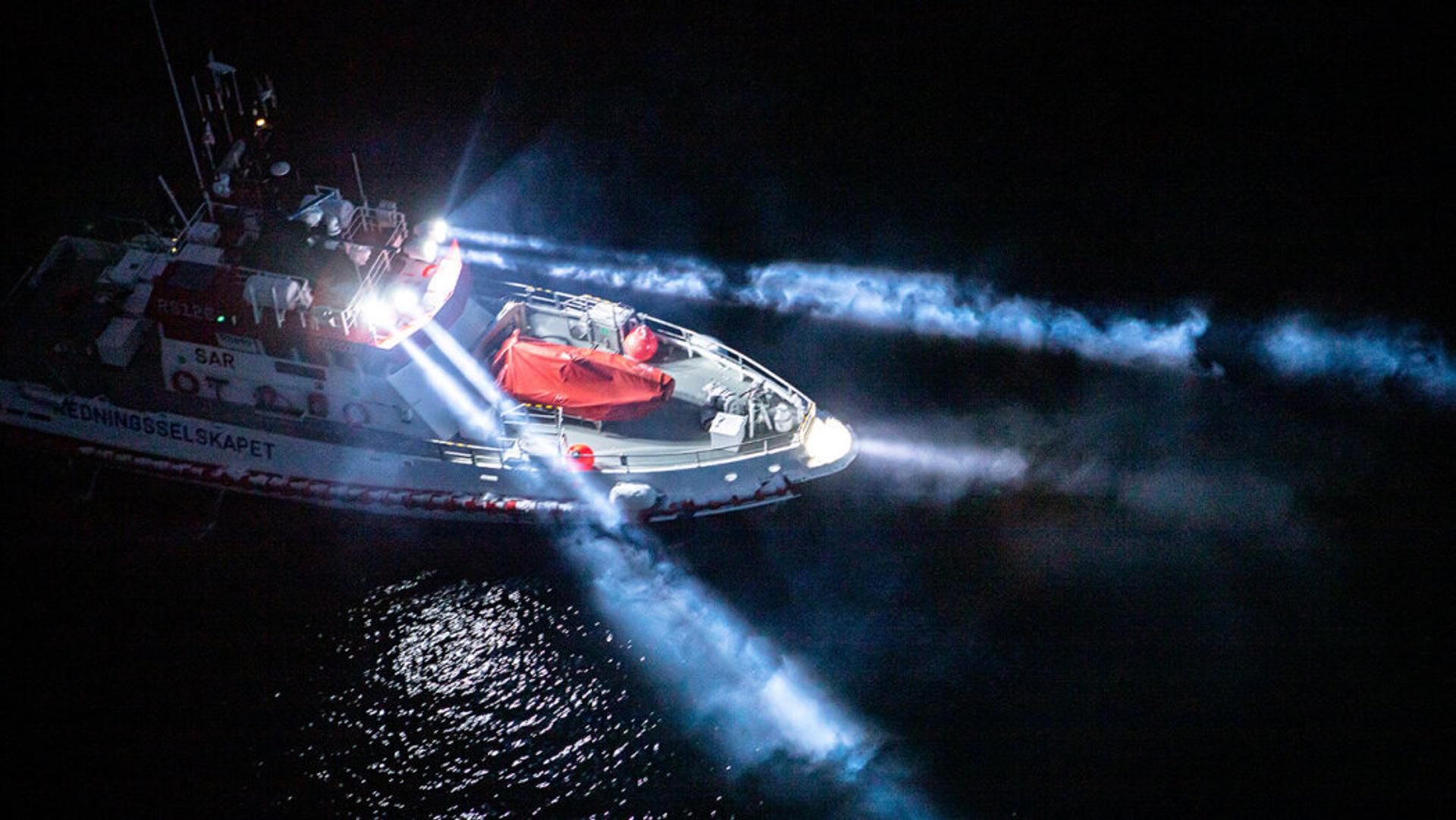Around the world with Team Norway: Spain and Portugal forge ahead in offshore wind

Spain and Portugal work closely together on offshore wind, as the neighbouring countries share resources and alignment on energy goals.
“By working together, we can better capitalise on our natural advantages, reduce costs, innovate and contribute to our common broader energy objectives,” says Rodrigo Ballesteros Cruz, Senior Advisor at Innovation Norway’s office in Madrid.
Goal is commercial-scale offshore wind projects
Spain and Portugal are currently in the process of transitioning from prototype projects, which have been subsidised and don’t follow standard market rules, to commercial-scale projects.
“Spain has set a target of 3 GW. While Portugal initially aimed for 10 GW, it will also start with 3 GW due to total energy consumption considerations. Both countries have a shared Iberian market, which makes it natural for them to cooperate closely,” Cruz explains.
There is significant energy exchange between the two countries, making a strong case for both to plan large-scale renewable projects such as floating offshore wind.
Portugal further ahead in offshore wind development
Portugal has legislation and a regulatory framework in place to support the development of offshore wind energy. The country has been proactive in promoting development, consulting the industry at an early stage. Portugal has made good progress, with three floating turbines in the north already online and producing electricity.
“Although these projects are still prototypes and supported by subsidies, they are a step forward. Spain, on the other hand, has only a few small floating turbines that are not yet connected to the grid. But with new legislation, Spain is expected to speed up the process,” Cruz points out.
According to him, a key difference between the two countries is the way in which they plan to develop and lease project areas.
“Portugal intends to pre-assess project areas by conducting oceanographic and wind condition studies before leasing, reducing the risk for companies. In mainland Spain, however, it is still under debate whether the companies will need to undertake these studies themselves.”
Rodrigo Ballesteros Cruz
Senior Advisor, Innovation Norway, Spain
Spain entering playing field with new legislation
The Spanish Council of Ministers, on the recommendation of the Ministry for the Ecological Transition (MITECO), has recently approved a new Royal Decree to regulate offshore renewable energy production.
“The new legislation in Spain marks a significant step forward for the development of offshore wind. It creates a structured regulatory framework that supports the growth of this sector by designating specific zones for offshore wind farms,” says Cruz.
The new regulation helps to streamline the process of approval, grid access and securing locations, which has been a key challenge for offshore wind developers until now.
“For Spain, this means a more predictable and organised expansion of offshore wind, aligned with national goals to generate up to 3 GW of offshore wind energy by 2030. By promoting public dialogue, it encourages cooperation between renewable energy developers and other stakeholders, like fishers and coastal communities, to minimise conflicts and maximise local benefits,” he says.
The next step will be to issue the Ministerial Orders stipulating the location, timeline, size and specific conditions for the first auction.
All signs point to the Canary Islands for the first offshore wind project, with an estimated 200 MW in the south of Gran Canaria. The regional government of the Canary Islands is planning to issue a tender to obtain the necessary data for developers to plan their proposals and will cover the costs of conducting metocean condition and geological surveys. These will be offered to the interested developers free of charge.
The new regional government of Catalonia has expressed its interest in developing a project as soon as possible. Galicia and the Basque Country are also potential regions for offshore wind development.
Fruitful collaboration between Norway, Spain and Portugal
Cruz confirms that Norway is top of mind among players in the Spanish offshore wind industry. He adds that Innovation Norway has been working to ensure that Norway has a visible presence, is involved in shaping legislation and operates offshore wind on a competitive basis aligned with market prices.
Norway has extensive experience in offshore floating structures, which are designed for durability and optimal performance in harsh ocean conditions. This is complemented by the extensive experience provided by established offshore developers.
In addition, Norway excels in monitoring systems, including remote monitoring, as well as systems, services and equipment for gathering data on a wide range of offshore conditions, including metocean conditions.
“Norwegian expertise is crucial for Spain. Norway has decades of experience in offshore oil and gas, where we’ve mastered floating structures and marine engineering under challenging conditions,” says Cruz.
These floating structures are essential for Spain and Portugal, where the coastal waters are typically too deep for bottom-fixed turbines.
Collaboration goes both ways
Both Spain and Portugal have extensive experience in manufacturing components for wind turbines, such as blades, towers and nacelles, supported by Spanish and Portuguese companies like Siemens Gamesa, Acciona, and EDP Renewables, which are industry leaders with a track record in wind energy production. These companies also bring substantial financial resources and project development experience, making them well suited to take on the larger, more complex offshore projects required for floating wind farms.
The two countries’ commitment represents a significant step forward in offshore renewable energy and addressing energy needs with sustainable solutions. Building on existing collaboration, Spain and Portugal are well positioned to become players in the global offshore wind market.
 Archer Wind industrialises floating offshore wind foundationsArcher Wind, formerly Moreld Ocean Wind before being acquired by Archer in July 2024, is introducing a modular approach to floating offshore wind turbine foundations. The result will be quicker production, lower costs and a smaller carbon footprint. “Our solution will help to industrialise floating offshore wind energy, making it more viable in the global energy mix,” says Asbjørn Wathne, VP Business Development at Archer Wind.
Archer Wind industrialises floating offshore wind foundationsArcher Wind, formerly Moreld Ocean Wind before being acquired by Archer in July 2024, is introducing a modular approach to floating offshore wind turbine foundations. The result will be quicker production, lower costs and a smaller carbon footprint. “Our solution will help to industrialise floating offshore wind energy, making it more viable in the global energy mix,” says Asbjørn Wathne, VP Business Development at Archer Wind. Glamox lights up offshore wind with smart solutionsGlamox delivers smart lighting solutions for the marine and offshore wind industries, lowering costs and increasing sustainability. “By digitalising offshore lighting, we are bringing something new to the table,” says Ole Petter Andresen, Director Commercial Management - Marine and Energy Applications and Products at Glamox Group.
Glamox lights up offshore wind with smart solutionsGlamox delivers smart lighting solutions for the marine and offshore wind industries, lowering costs and increasing sustainability. “By digitalising offshore lighting, we are bringing something new to the table,” says Ole Petter Andresen, Director Commercial Management - Marine and Energy Applications and Products at Glamox Group. Baltoflake steel coatings prevent offshore wind turbine corrosionBaltoflake coatings from Jotun are high-performance coatings that prevent steel corrosion and extend the life of offshore wind assets, supporting the transition to renewable energy and sustainable operations.
Baltoflake steel coatings prevent offshore wind turbine corrosionBaltoflake coatings from Jotun are high-performance coatings that prevent steel corrosion and extend the life of offshore wind assets, supporting the transition to renewable energy and sustainable operations. Automasjon & Data’s helideck monitoring systems prevent accidentsAutomasjon & Data delivers helideck monitoring systems for offshore wind farms, increasing worker safety while reducing operational costs. “Our state-of-the-art systems are making the offshore wind industry safer and more profitable,” says Jon Arne Silgjerd, Sales and Business Development Director at Automasjon & Data.
Automasjon & Data’s helideck monitoring systems prevent accidentsAutomasjon & Data delivers helideck monitoring systems for offshore wind farms, increasing worker safety while reducing operational costs. “Our state-of-the-art systems are making the offshore wind industry safer and more profitable,” says Jon Arne Silgjerd, Sales and Business Development Director at Automasjon & Data.
